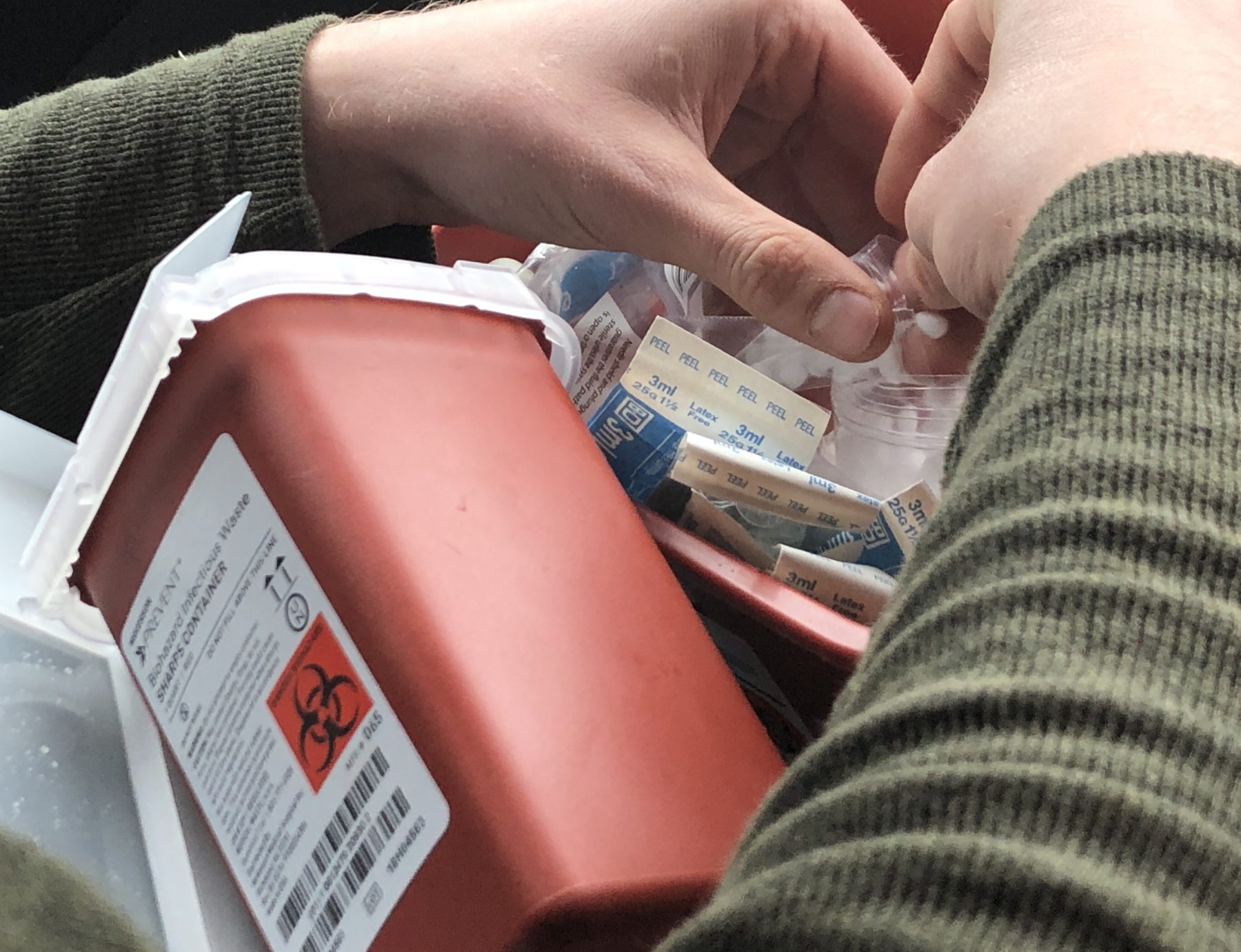HIV infections are surging in Cabell County, West Virginia. On April 4, 2019, the West Virginia Bureau for Public Health (WVBPH) issued a health advisory regarding a spike in new diagnoses of people who inject drugs (PWID) such that the county is likely to exceed twice the number of new diagnoses that had been previously predicted. But the outbreak did not blindside the region. After all, just a county over, the Kanawha-Charleston County syringe service program (SSP) closed last year after Charleston Mayor Danny Jones led an assault on the program, calling it a “needle mill.”
Launched in 2015 in West Virginia’s capital, the SSP run by the county’s Health Department offered far-reaching harm reduction services, but municipal opposition, like Jones, claimed it was attracting crime. In turn, law enforcement imposed harsh restrictions that are not considered to be clinical ‘best practice.’ Among them included demonstration of proof of county residency, which would have effectively excluded those from Cabell. “It’s our health department,” Paul Ellis, the city attorney, told The New York Times. “We created it. We can make it disappear.”
Faced with operating a substandard SSP, the Health Department instead suspended it in 2018.
The city’s move to pull the plug is technically legal—but it has had devastating results. Access to sterile syringes shown to reduce the harms associated with injection drug use has since plummeted, according to a new study by researchers from Johns Hopkins University (JHU) Bloomberg School of Public Health.
Without the publicly-run SSP, it is “damn near impossible to get them [sterile syringes],”a 29-year-old man who had utilized SSP services told the JHU researchers. “They’re like gold out here now.” Before law enforcement shut down the program’s operations, over 400 people were served each week—a significant number given its rural context.
While West Virginia Health Right, a nonprofit SSP with a strict one-for-one exchange policy, remains, few PWID interviewed were aware of it, and the folks who were familiar would not recommend it. “I went to the exchange program there the one time and I haven’t been back,” said one woman who tried attending the private clinic. “You know, they just make you feel really uncomfortable. They make you feel like you’re a bad person.” Additionally, the clinic distributes retractable syringes, which some users dislike because “you cannot push them down all the way but then you’re not getting all your dope.” This has proven to be a barrier, even leading some to avoid utilizing the resource because of them.
With the go-to SSP gone, and West Virginia pharmacies not officially authorized to sell syringes like in other states, PWID are looking to street-based vendors for syringes, who provide an irregular supply of insulin syringes, offering them for as much as six dollars per single syringe. “Gently-used” rigs are also available for purchase on the street-level.
“Most of the time if you can’t find that person who has got some clean ones [syringes], man, you’re just trying to take the first rig you can get to,” a 35-year-old participant reported. While some interviewees disclosed that they were using discarded syringes found on the street, he has been offered used needles for purchase. “By that time you want it so bad, you’re like, man, I don’t care. I’ll give you 10 bucks for that needle, just give it to me, man.”
The scarcity of sterile injection equipment has amped up risks. “If I can’t find [sterile syringes]—I’ll just use the same one that I’ve got,” said a 28-year-old interviewee. He did so as a way to avoid the risk of contracting a blood-borne disease that is associated with sharing needles. But that doesn’t mean a reused syringe is anymore safe. “Right now, like I say I’ve got one that the needle’s actually turning on it and bent up and stuff. So yeah… I mean, it hurts really bad. It strikes a nerve in you and honestly it leaves worse—I mean worse marks. A new one wouldn’t do all that right there,” he told the researchers, pointing to tract marks and abscesses on his arm.
Access to sterile syringes is not the only loss the community faces: HIV/HCV testing and naloxone are also disappearing. “Since the exchange closed, I thought it [naloxone] disappeared into thin air or something,” noted a 24-year-old woman, “because I have not seen not a one.”
West Virginia has the highest age-adjusted rate of drug overdose deaths involving opioids. In 2017, there were 833 drug overdose deaths involving opioids in the state.
“Choosing to ignore the evidence-base for SSP operations not only presents an ethical and moral dilemma, but also sets the stage for an HIV outbreak and worsening overdose epidemic,” wrote the researchers. This, in fact, is now coming to pass.
WVBPH had expected the county to see eight new HIV diagnoses per year for all at-risk groups, including men who have sex with men (MSM). Yet in 2018, 17 Cabell County residents who inject drugs were diagnosed with HIV in Cabell County. The Health Department SSP had been suspended in March 2018—and almost half of the new diagnoses (seven) occurred in the year’s fourth quarter. Into the new year, the outbreak has only accelerated. Since January 1, 2019, thirteen PWID have been diagnosed in the county.
Photograph: Sessi Kuwabara Blanchard





Show Comments